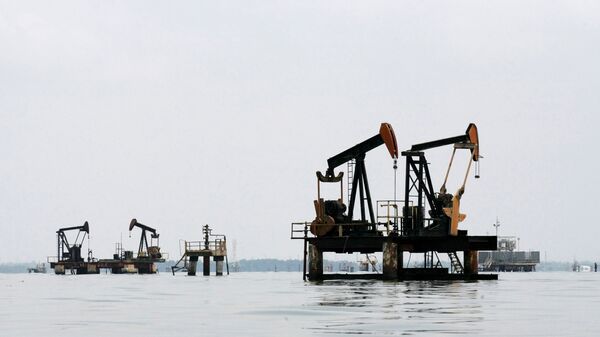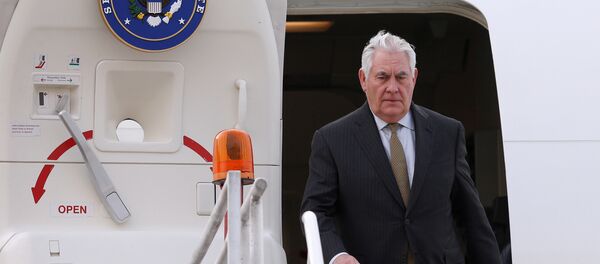"One additional step can be taken to increase the pressure on [Venezuelan President Nicolas] Maduro's regime to return to the constitution, to the constitutional process … Obviously sanctioning oil, or in fact prohibiting the oil to be sold in the United States… is something we can consider," Tillerson told a press conference in Argentina, adding that US restrictions may concern oil products as well.
He added that the United States was considering the measure in light of failing democracy in Venezuela.
Last Thursday, Tillerson said that the United States was not insisting on the change of the government in Venezuela but pointed out that the voluntary resignation of Maduro would be the best option for Venezuela.
Earlier in January, the Venezuelan National Assembly proposed to reschedule the election in the country, which is now set to be held before April 30 instead of late 2018 as previously planned, prompting protests from the opposition. Venezuelan ruling United Socialist Party decided on Friday to nominate its leader Maduro for the country's snap presidential election.
Venezuela, mired in a deep economic crisis caused by the fall of oil prices, has been facing mass protests since spring. The manifestations were initially a response to the decision of the country's top court to severely limit the legislative powers of the parliament. Despite the fact that the decision was eventually overturned, the protests continued.



